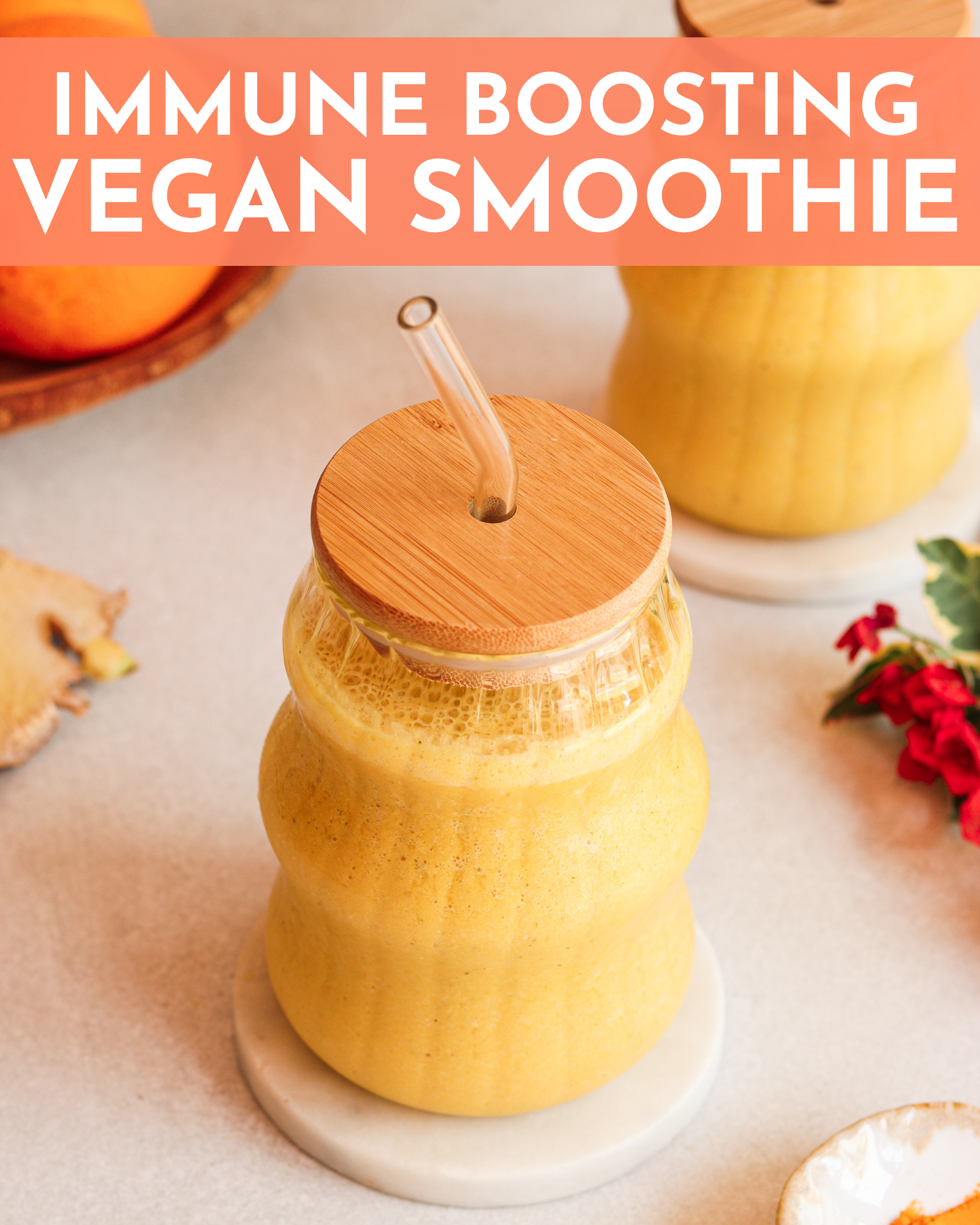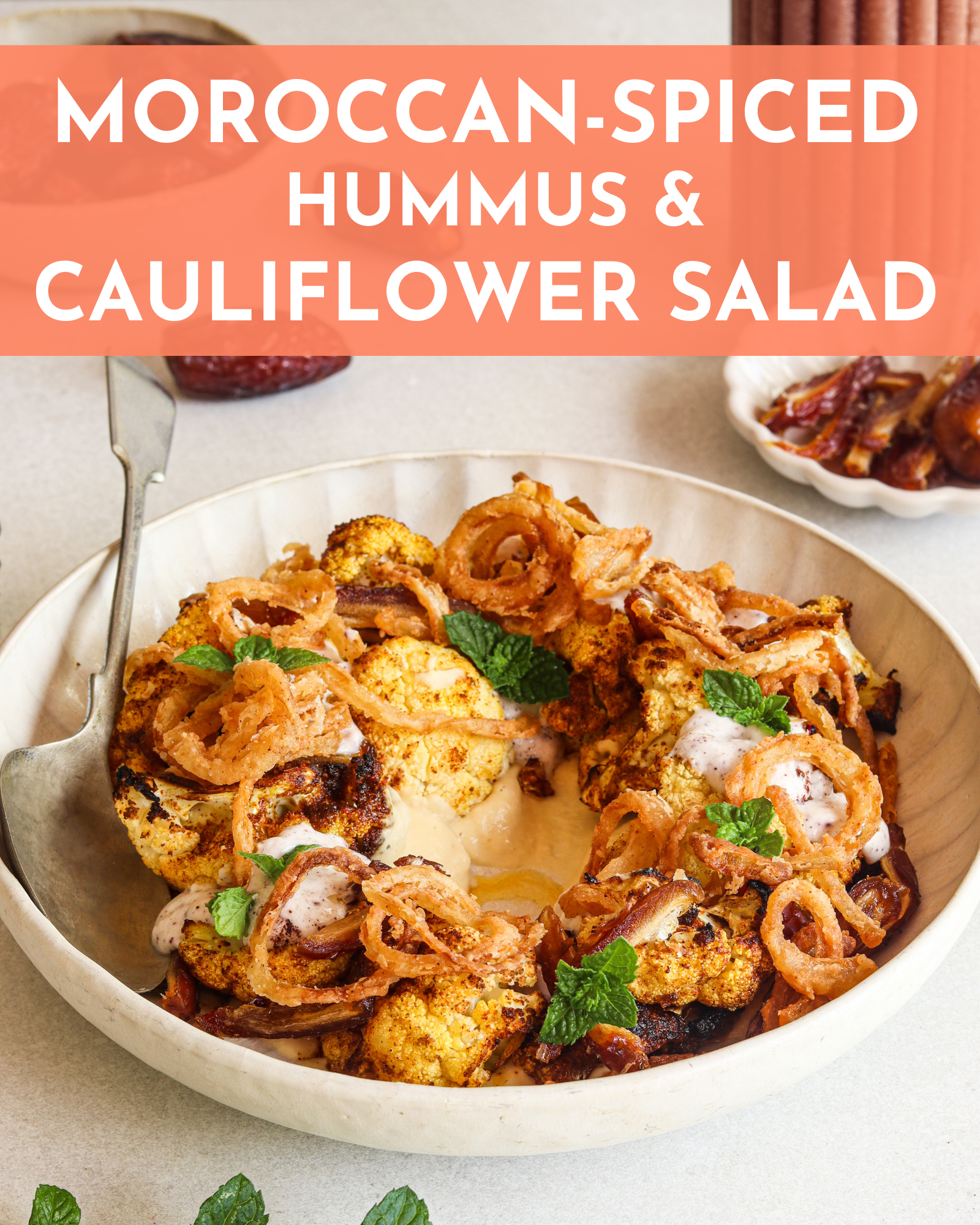Hello friends! Welcome to the Spring Festival! It’s that time of year again when red envelopes are exchanged and the aroma of traditional foods fills the home. If you know anything about Chinese New Year celebrations, you know it’s also a time where every dish, every Chinese word uttered, and every sticky rice ball carries a deep meaning, soaked in symbolism.
During this time of year, what’s good luck and what’s bad luck plays an important role, especially around food. From the crowded streets of Hong Kong to the quiet homes of South Korea, traditional Chinese New Year foods are about so much more than just nourishment.
They’re about bringing happiness, good health, and prosperity into the new year.
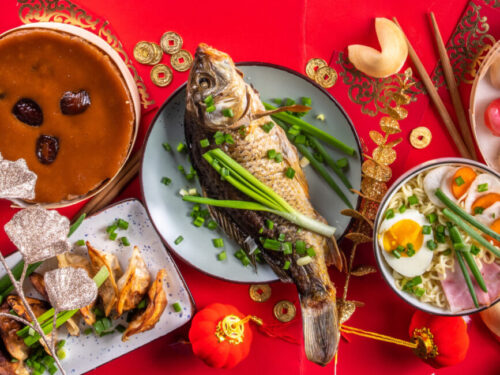
Today, we’re exploring lucky Lunar New Year foods and talking what each one symbolizes. (And if you’re looking for which foods to avoid this time of year, check out our full rundown of Unlucky Foods For Chinese New Year.) Let’s dive in, shall we?
Spring Rolls (春卷, Chūnjuǎn)
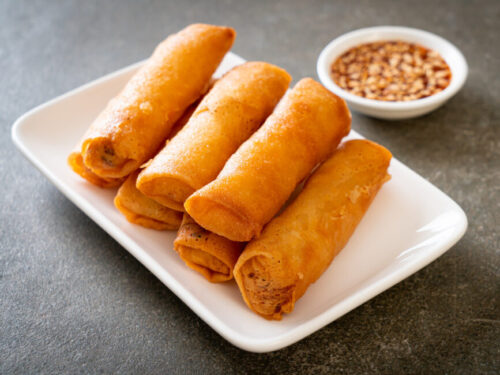
Ever wondered why spring rolls are such a popular dish during the Lunar New Year celebration? Well, aside from being irresistibly crispy and delicious, they’re basically little, edible gold bars! Their golden-brown color and elongated shape tend to resemble a ton of gold, making them a symbol of wealth and prosperity. Looking to roll some wealth into your new year?
Try making them yourself with our very own Steamy Kitchen Spring Rolls Recipe. Trust me, your taste buds and fortune will thank you.
Pomelo (柚子, Yòuzi)
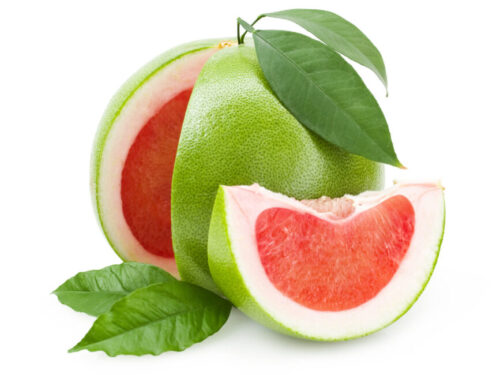
This giant citrus fruit isn’t just refreshing, it’s a symbol of family unity and abundance. In Chinese culture, the word for pomelo sounds like “to have”, making it a lucky fruit to enjoy during the festivities. It’s a lucky food that says, “We’ve got everything we need right here!”
For a zesty twist, check out Linda’s Pomelo Salad Recipe at Roti N Rice and dive into a bowl of refreshingly good fortune!
Jujube (紅棗, Hóngzǎo)
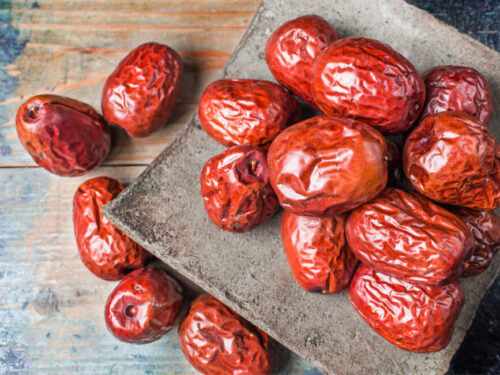
These little red dates are a deliciously sweet treat, and in the Chinese tradition, their vibrant color is a beacon of good luck and prosperity. Because of this, they’re used in a plethora of dishes during the annual celebration. Here’s one of my favorites: Jeanette of Jeanette’s Health Living has an amazing Jujube Date Jam Recipe.
Spread some luck on your morning toast this new year!
Buddha’s Delight (羅漢齋, Luóhànzhāi)
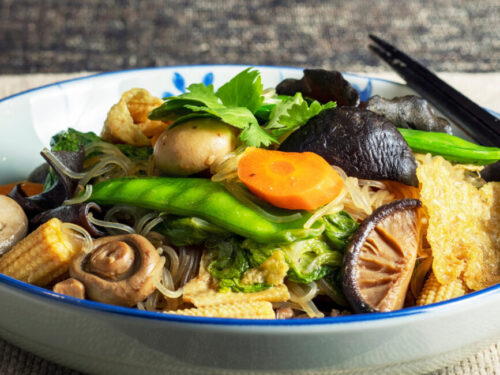
This traditional dish is not only vegetarian, but it also symbolizes purity and cleansing. Eating Buddha’s Delight is akin to giving your body and soul a fresh start for the coming year. And it’s packed with all sorts of goodies like shiitake mushrooms (which represent a long life) and bamboo shoots (prosperity and vitality).
Get your cleanse on with this Buddha’s Delight Recipe from Azlin at Lin’s Food.
Chicken Feet (鳳爪, Fèngzhuǎ)
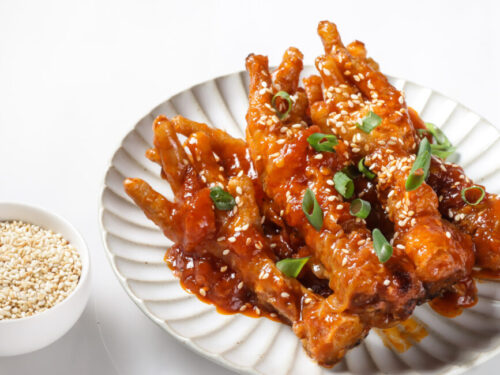
Okay, before you squirm, hear me out. Chicken feet might not be everyone’s cup of tea, but in Chinese culture, they’re seen as a symbol of success and abundance. A little like munching your way to achieving your goals.
Feeling adventurous? Give Randy’s Chicken Feet Recipe a go at Made With Lau. Who knows, it might just be the kick you need for a successful year.
Peking Duck (北京烤鴨, Běijīng Kǎoyā)
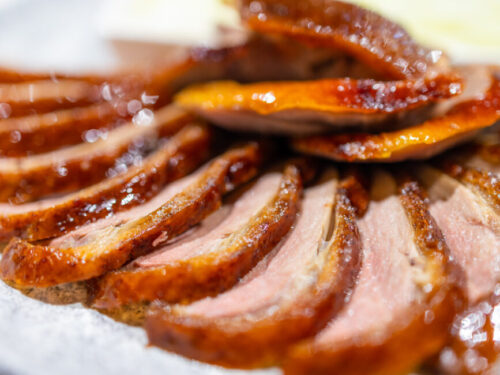
To many Chinese people, Peking duck is the Rolls-Royce of duck dishes. It’s known for its succulent meat and crispy skin, but did you know it’s also a symbol of loyalty and happiness within Chinese culture? It’s also the kind of meal that conveys to family members, “We’re in this together, and it’s going to be delicious.”
Craving some? Check out Wei’s Peking Duck Recipe at Red House Spice.
Lychee (荔枝, Lìzhī)
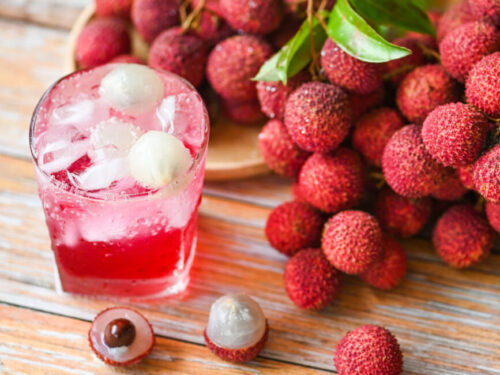
Sweet, juicy, and bursting with flavor, lychees are seen as a symbol of strong family ties and abundance. “Family first, and make it sweet,” each little Lychee whispers. For a fun twist, why not mix up a Lychee Mai Thai this Chinese New Year’s eve, courtesy of Kazu from Funky Asian Kitchen? It’s basically the festive spirit in liquid form.
Longevity Noodles (長壽麵, Cháng Shòu Miàn)
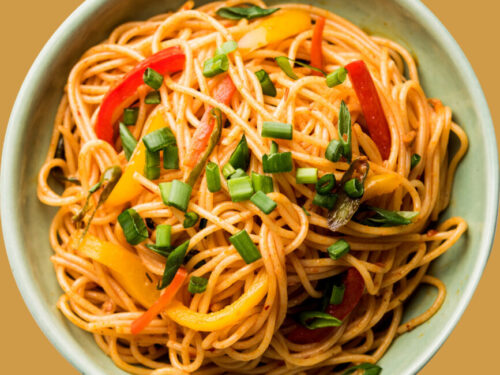
Who doesn’t love noodles? Except, these aren’t just any long noodles… they’re long-life noodles! Longevity Noodles symbolize, well, longevity. Their length represents a long, healthy life, so slurp away to add on those extra years!
Want to try your hand at these life-extending noodles? Ms Shi & Mr He have got you covered with their Longevity Noodles Recipe.
Black Moss Seaweed (髮菜, Fàcài or Fat Choy)
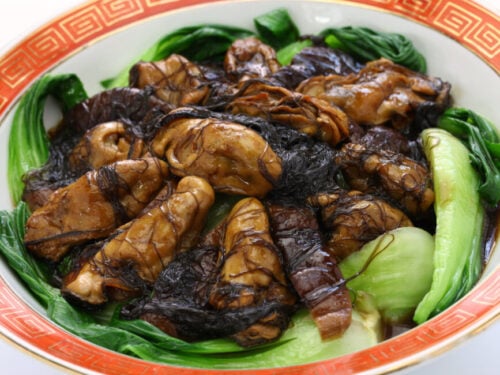
This might look like a bunch of tangled seaweed, but the Chinese name for Black Moss sounds suspiciously similar to the Chinese word for “getting rich”. So, of course it’s a must-have for those aiming to boost their wealth this year. Black moss is rarely eaten alone and is usually mixed into Chinese food to enhance the meal’s wallet-fattening abilities. Intrigued? Jeanette from Wok & Kin whips up a mean Braised Mushrooms and Black Moss Recipe. Get ready to rake in that dough – figuratively, of course.
Whole Steamed Fish (魚, Yú)
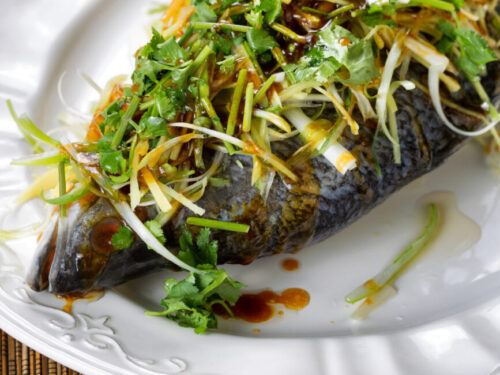
The star of many a New Year’s Eve dinner table, a whole fish one of those auspicious foods that symbolizes abundance and prosperity. In Chinese, the word for fish sounds like ‘surplus’, so it’s like saying, “May you always have more than enough!” But here’s the kicker – you shouldn’t finish the whole fish. Leaving some invites that surplus to roll over to the next year. Dive into Mei’s of Two Plaid Aprons’ classic Chinese Steamed Whole Fish Recipe. And may you be swimming in prosperity this year.
Lion’s Head Meatballs (狮子头 – Shīzitóu)
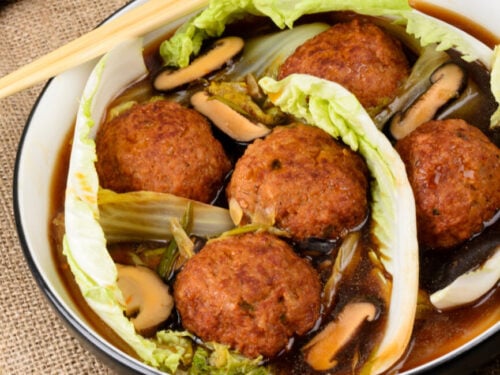
When you hear ‘Lion’s Head Meatballs’, you might think it’s something fierce, but it’s actually a dish that’s all about prosperity, strength, and vigor. These meatballs are named for their resemblance to the head of the traditional Chinese guardian lion, which symbolizes protection and good fortune. They’re eaten for just about any special occasion, but are also definitely a hit at any New Year Reunion Dinner. Try making these majestic meatballs yourself with Sam and Dan’s recipe from Ahead of Thyme: Lion’s Head Meatballs Recipe.
Turnip Cake (蘿蔔糕, Luóbogāo)
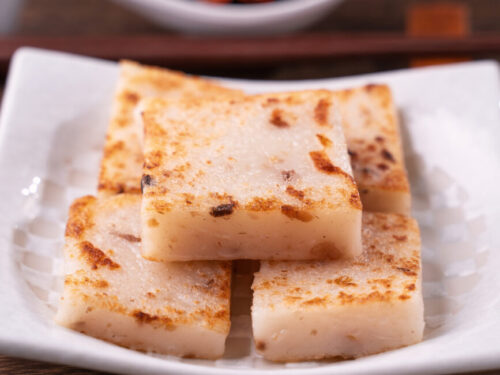
Don’t let the name fool you; this cake isn’t actually made with turnip at all. It is, however, savory and steamed and made from shredded radish and rice flour, AND it’s all about good omens and prosperity. Eating Turnip Cake is like decadently diving into a slice of good fortune. Ready to give it a try? Check out Thanh’s Turnip Cake Recipe over at Eat, Little Bird.
Hot Pot (火锅, Huǒ Guō)
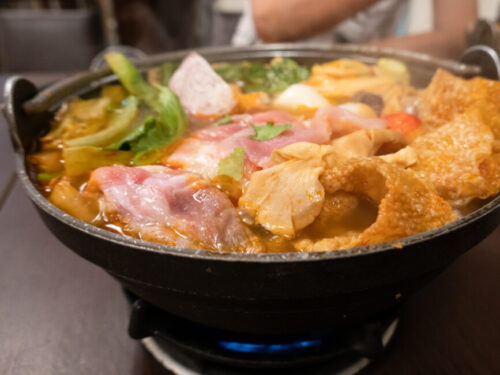
If you’ve ever had Hot Pot, you’ll know it’s more than just a meal; it’s an experience. Hot Pot (or Steamboat as it’s called in Southeast Asian countries) with its round shape and communal eating style, is all about unity and harmony in Chinese culture. Like gathering around a culinary campfire, where everyone shares, cooks, and enjoys the meal together. It’s a circle of food, love, and warmth. Craving some communal cooking? Dive into this Chinese Hot Pot Recipe from CC of Asian Cooking Mom, and bring the whole family together.
Chinese BBQ Pork (叉燒, Char Siu)
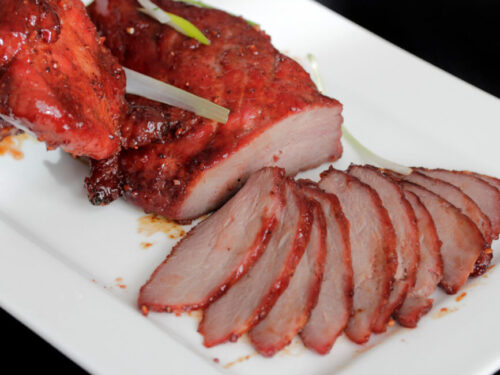
For starters, let me tell you… this sticky, sweet, and savory pork is SO good! Beyond the incredible flavor, it also symbolizes strength, wealth, and blessings. You might even think of it as an edible spell to bring some abundance into your life. Ready to BBQ your way to blessings? Joyce from Pups With Chopsticks has a fantastic Chinese BBQ Pork Recipe. Get that glaze ready, and let the good times roll!
Oranges and Tangerines (橙, Chéng and 桔, Jú)
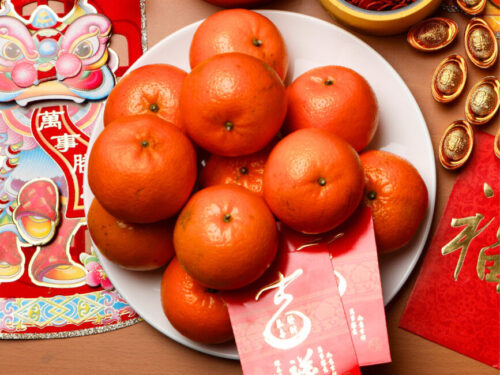
Last but definitely not least, oranges and tangerines are just as much a traditional Lunar New Year food as any cooked meal, and they’re all about luck and wealth. Their names sound like ‘success’ and ‘gold’, making them a must-have for a lucky new year. Plus, they’re a healthy, refreshing snack to balance out all the feasting. And the best part: no recipe needed for these! Just peel, enjoy, and soak up those lucky vibes.
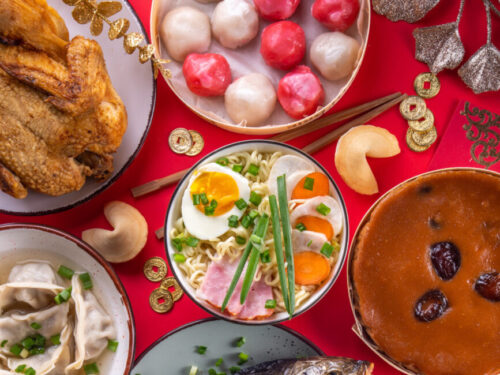
Hope you enjoyed this feast of flavors and symbolism! Whether you’re cooking up a storm or just enjoying the read, here’s wishing you a year filled with all the good fortune, health, and deliciousness you could ever want. Happy cooking, happy eating, and most importantly, Happy Chinese New Year! 🍊🍲🥢🎊
Check Out More About Chinese New Year Foods Here:
- Chinese New Year Recipes + Superstitions
-
Chinese New Year Recipes: What to eat if you want more money!




